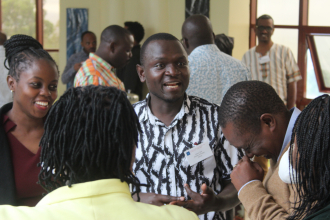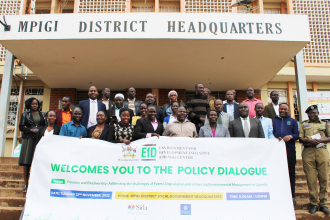We are living in a crisis era, with competing land use for finite land and ill-informed myopic urban land-use policies that remain stagnant, in a world with a rapidly changing urban environment, such as the mushrooming urban agriculture. While smallholder farms in and around cities, in sub-Saharan Africa, provide many ecosystem services including boosting household income and nutrition, and access to land constraints these benefits. This paper examines the willingness to pay for urban farm plots, using a random parameter logit model.



